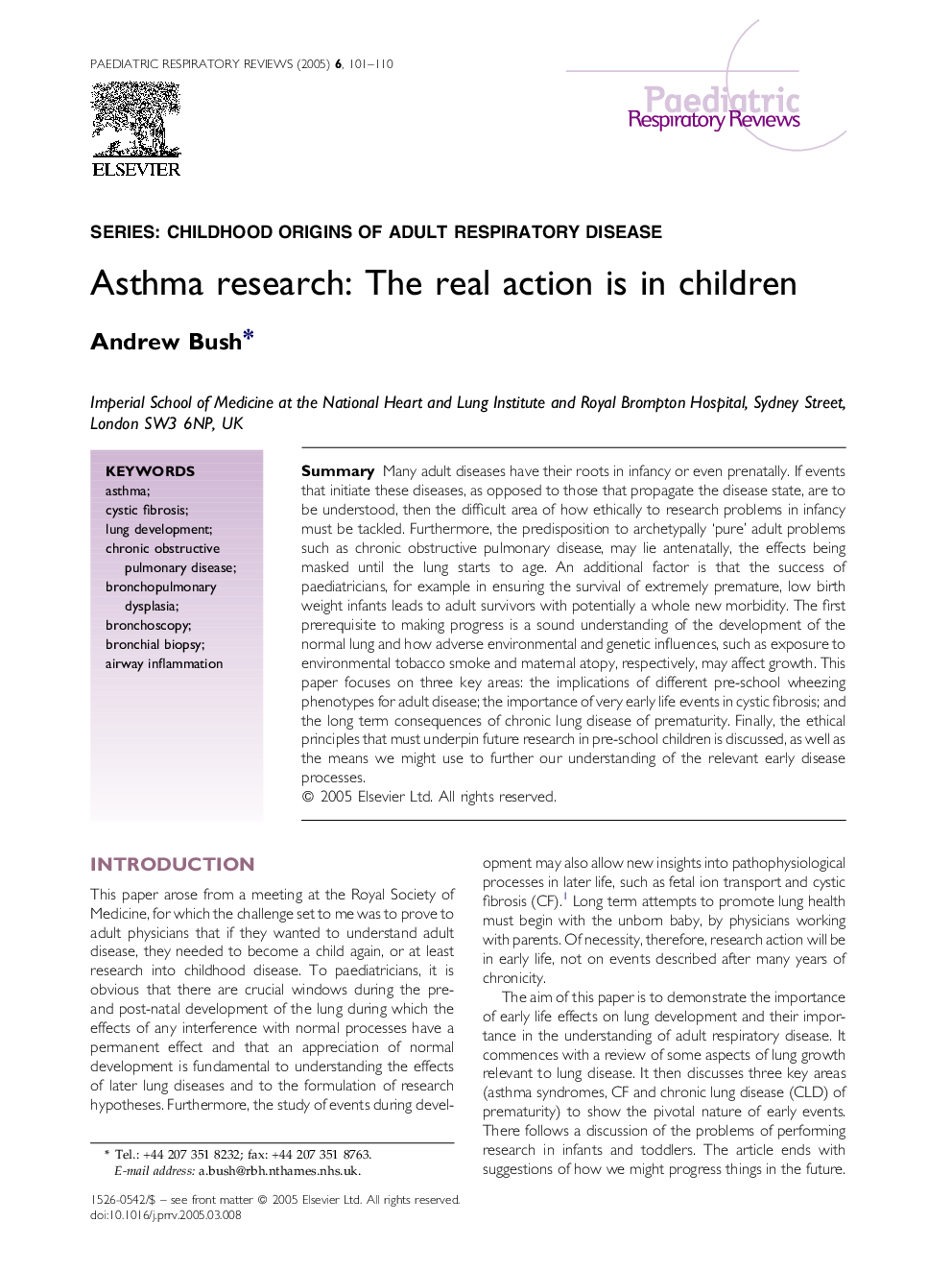| Article ID | Journal | Published Year | Pages | File Type |
|---|---|---|---|---|
| 9376753 | Paediatric Respiratory Reviews | 2005 | 10 Pages |
Abstract
Many adult diseases have their roots in infancy or even prenatally. If events that initiate these diseases, as opposed to those that propagate the disease state, are to be understood, then the difficult area of how ethically to research problems in infancy must be tackled. Furthermore, the predisposition to archetypally 'pure' adult problems such as chronic obstructive pulmonary disease, may lie antenatally, the effects being masked until the lung starts to age. An additional factor is that the success of paediatricians, for example in ensuring the survival of extremely premature, low birth weight infants leads to adult survivors with potentially a whole new morbidity. The first prerequisite to making progress is a sound understanding of the development of the normal lung and how adverse environmental and genetic influences, such as exposure to environmental tobacco smoke and maternal atopy, respectively, may affect growth. This paper focuses on three key areas: the implications of different pre-school wheezing phenotypes for adult disease; the importance of very early life events in cystic fibrosis; and the long term consequences of chronic lung disease of prematurity. Finally, the ethical principles that must underpin future research in pre-school children is discussed, as well as the means we might use to further our understanding of the relevant early disease processes.
Keywords
Related Topics
Health Sciences
Medicine and Dentistry
Perinatology, Pediatrics and Child Health
Authors
Andrew Bush,
